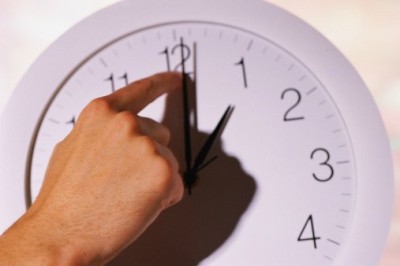The Illinois Senate today approved legislation aimed at making daylight saving time the year-round standard in Illinois.
Sponsor of the Bill, State Senator Andy Manar, said that the inspiration for Senate Bill 533 came from a group of students from Carlinville High School, who presented the idea to Senator Manar as part of a civics class project.
“My compliments to last year’s students at Carlinville High School for engaging the governmental process, engaging an elected official, and setting the Senate into motion to ask questions about the arbitrary nature of time change. That was what they set out to do, and today the Illinois Senate agreed with them.”
In May, the students – Andrew DeNeve, Tyler Behme, Travis Osborn, Tristen Burns and Tucker Green – presented their research before the Senate State Government
Committee, which approved SB 533 unanimously.
Business interests have long supported the practice of moving
clocks ahead by an hour because consumers are more likely to shop before the sun
sets.
Manar said that the effect the time change has on public health was a major motivator in proposal of the bill.
“Something that we have talked about here in the Senate, every step of the way is the arbitrary nature of the government ordering time change has a detrimental impact on individuals health.
Every point of data shows that, that time change every year, affects individuals from, mental health, to individuals that have illness that they have to manage, to any number of things that they then have to set into motion in their lives, is number one. Number two is that I hear from small business owners that that arbitrary change affects their business in a negative way. So, this is an effort to join other states that have already made this decision. Ultimately we need the Congress to change it, but I am pleased we moved this Bill forward today”
Research has shown that switching back to standard time in the fall is associated with a spike of diagnoses of depression and a modest increase in heart attacks. A 2015 report published in the Review of Economics and Statistics found that extra daylight in the evening after the switch to daylight saving time led to a drop in crime that was not offset by increased crime during the darker morning hours.
Because time is regulated by federal law under the Uniform Time Act of 1966, one of two scenarios must take place in order for daylight saving time to become the permanent standard if SB 533 is passed into law:
Federal legislation must be passed to exempt Illinois from the Uniform Time Act of 1966 in a way similar to Arizona and Hawaii; or
Federal legislation must be passed to repeal or amend the Uniform Time Act of 1966 to make daylight saving time the year-round standard nationwide.
More than 35 states introduced legislation in 2019 to do away with seasonal time changes by eliminating or standardizing daylight saving time.
SB 533 will now move to the House for consideration




